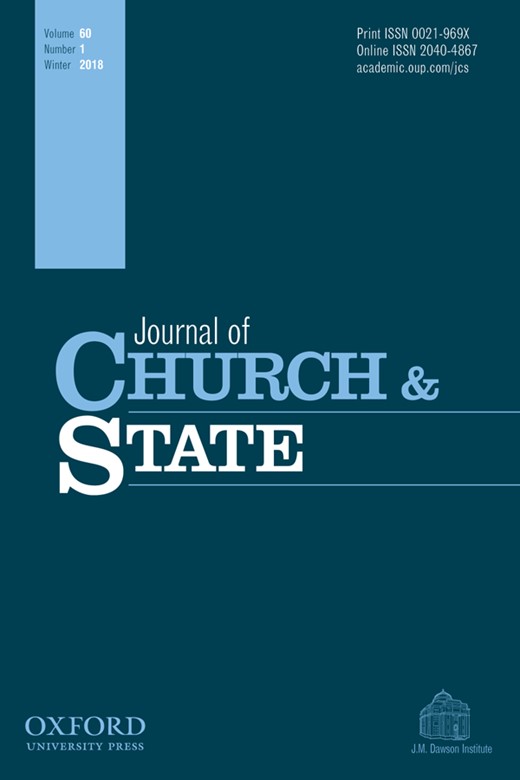-
Views
-
Cite
Cite
Turan Kayaoglu, Shari’a in the Secular State: Evolving Meanings of Islamic Jurisprudence in Turkey. By Russell Powell, Journal of Church and State, Volume 60, Issue 1, Winter 2018, Pages 130–131, https://doi.org/10.1093/jcs/csx088
Close - Share Icon Share
Extract
This is a welcome addition to the growing literature on Islam in Turkey in particular and on religion and politics in general. Russell Powell provides a complex account of the historical evolution of religion and politics in Turkey, beginning with the late Ottoman period. He then shows that the support for Shari’a among Turks is on the rise, that Turks attribute diverse meanings to Shari’a, and that the religious authority in Turkey is fragmented. As the introduction promises, the book does indeed provide “insights into the fractured meanings attributed to Shari’a in contemporary Turkey. Even for traditionalists in Turkey, Islamic jurisprudence is not generally conceived of in classical or medical terms. It has become a symbol of faith and piety for some and of oppression for others. But regardless of the meanings attributed to it, Shari’a impacts public discourse around law” (p. 6).
Powell’s findings confirm and extend earlier studies. Four of the findings stand out: First, the support for Shari’a among Turks has been increasing since the Justice and Development Party’s accession to power in 2002. Now a quarter of Turks support Shari’a. Powell shows that the understanding of Shari’a held by most Turks has been influenced by modernist approaches to Islam. Shari’a-supporting Turks do not reject traditional fiqh (Islamic jurisprudence) but they are uneasy about the application of Shari’a to issues such as gender relations, apostasy, alcohol consumption, or hadd punishments (criminal acts whose punishments are specified in the Quran)—some of the most controversial aspects of Shari’a.




